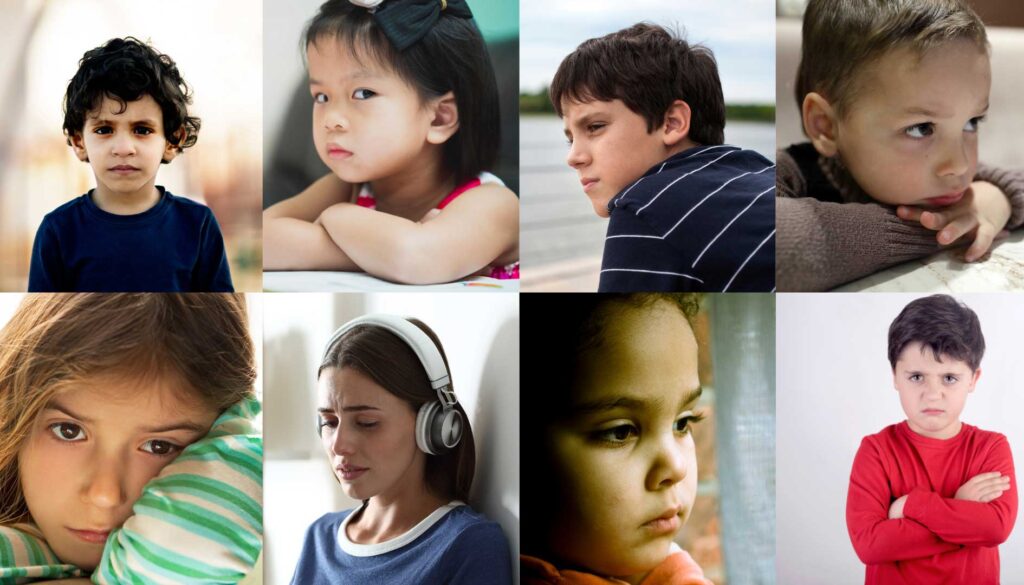What Your Child is Experiencing When You Remarry

When you get married again, you will likely feel a variety of emotions–excitement, nervousness, anticipation, and perhaps even a little fear. Your kids will experience the effects of remarriage, too, and they also feel a slew of emotions. The difference is that as an adult, you have developed the skills and maturity to express and process them in a healthy way. Your children likely have not gained those skills yet, so the effects of remarriage may be difficult for them to express. They may act out or internalize their feelings. Here are some things your child might be going through, even if they don’t know how to tell you.
Who Struggles Most When a Parent Remarries?
According to the American Psychological Association (APA), tweens and young teens (ages 10-14) may struggle the most with a new stepparent (and possible stepfamily) because they are already in a stage of development in which they are forming their own identity and tend to rebel. The effects of remarriage on these children may be stronger. Older teens (age 15 and up) may invest less in a stepfamily (because independence is in their sights) and may require hands-on parenting, making the transition easier. Children under age 10 are likely more accepting of a new adult in their life, especially if that adult expresses positive interest in them. Of course, every child is unique and may not fit neatly into a category, so the effects of remarriage will vary for everybody.
In addition, the APA also reports that children in stepfamilies prefer verbal affection (i.e., compliments or affirmations) rather than physical contact (i.e., hugs and kisses). This preference is especially true of a girl’s relationship with her stepfather. In general, boys appear to adjust more quickly to a stepfather. Again, these are generalizations that likely do not apply across the board.
What Kids Experience When You Get Remarried
As we’ve said, what your children are likely to experience will depend on their age and gender. In addition, their adjustment may be affected by how early you introduce the new stepparent and stepsiblings, and how much time you provide for your children to get to know the new members of their family. As we have talked with and ministered to blended families, we’ve noticed commonality in what the children say they experience. Here are a few:
- Anxiety over a new parent. Believe it or not, your children worry about whether their new parent will like them. Even if they are older and act “cool” about it, they still want this new adult’s approval. That’s one reason why it’s so important for your kids to spend time with your future spouse before you get married. Children spell love as t-i-m-e, and they bond with others by doing fun activities–trips to the zoo, go-karts, and ice cream runs. This assures kids that the new parent cares about them.
- Anxiety over new siblings. That desire to be liked? It applies to any children your spouse brings into the marriage, even if they won’t be living with you. And the same principle of fun still applies. Introduce everyone slowly, and keep one ground rule: respect each other. Over time, the kids will (likely) adjust and adapt and learn to get along. They may even learn to like their new stepparent and siblings.
- Jealousy over sharing a parent. After my divorce, I (Vanessa) was a single mom for several years before I started dating Scott. Over that time, Michael and I developed a strong bond. He had to get used to Scott’s presence in my life. The same may happen in your situation. When you start dating again, your children may experience some jealousy because they now have to share you with the new person in the picture. As this relationship progresses, reassure your children of their importance in your life and set aside special time to be with them.
- Concern for the “other” parent—and you. If you get married and your ex-spouse is still single, your child may worry about them. Your child loves both your ex and you, and they don’t want your ex to feel lonely, sad, alienated, or jealous. They may also worry that liking their new stepparent too much will be seen by their biological parent as disloyal. As for you (the one remarrying), your children don’t want you to experience the pain of another break-up. They witnessed the sadness, grief, and other emotions you and your ex showed (even if unintentionally) during the divorce, and they don’t want that to happen again.
If your children express this or worry about other aspects of your emotional health, let them know they are never responsible for an adult’s emotional well-being. Explain that your ex-spouse and you have the resources you need to achieve and maintain your mental health. Assure them that you can work through the emotions you experience, so they don’t need to worry.
- Sadness. Your children may have had a secret wish that you and your ex would get back together as they do in the movies and TV shows. When either of you remarries, then the child can no longer hope for reconciliation. The hope of your family getting “back to normal” is gone, and that could cause some grief and sadness. And they may need time to grieve, even if they are also excited about your remarriage. It may be confusing for them to experience both emotions at once!
- Awkwardness. Seeing mom and dad demonstrate affection was bad enough (“Ew! My parents are kissing!”), but watching a parent show affection for someone new–someone other than their biological parent–can feel extremely awkward. They may feel uncomfortable, so it may take time for them to adjust to this change.
Another layer of awkwardness or discomfort may surface if you and your child move in with someone new. The reverse also applies. It may feel less like “home” if a new stepparent and step-family move into their home and take over their “turf.” They may feel threatened by these “strangers” being in their space.
- Abandonment. Seeing a parent marry someone with children may feel like you are leaving them behind and creating a new family. Your kids may think you are choosing the new family over them, or they may wonder if they did something wrong to make you find a new family.
These are just a few of the possible things your child may experience when you remarry. Again, every child is different, which is why it’s important for you to spend one-on-one time with your children so they can share their thoughts and feelings and you can reassure them. In addition, we highly recommend therapy for your kids and even your whole family as you blend. Therapy gives kids a safe place to share emotions they may be too afraid to tell you about. It also allows an outsider with perspective to see and call attention to trouble spots in the blending process. Above all, we encourage you to pray about these newly-forming relationships. God is the Creator and Redeemer, and He wants the very best for you and your family in this (and every) season. Call out to Him, who can do “far more abundantly than all that we ask or think, according to the power at work within us.” (Ephesians 3:20) Wait and watch and trust Him to work.

Scott and Vanessa Martindale
Founders of Blended Kingdom Families









